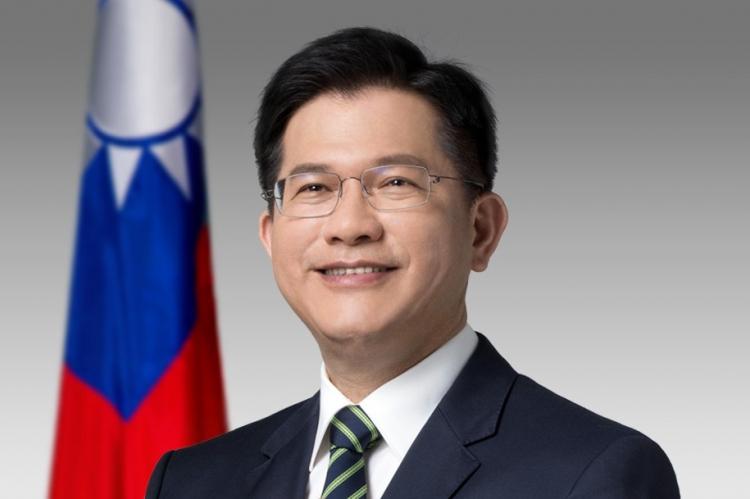Taiwan’s Influence in Belize: A True Ally or a Strategic Monopoly?
By Omar Silva
Editor: National Perspective Bz DIGITAL 2024
Belize City, 30th October 2024
The recent visit by Taiwan’s Foreign Minister, Dr. Chia-Lung Lin, marks an important moment for Belize, as the two nations celebrate 35 years of diplomatic relations. While the visit highlights Taiwan’s continued support for Belize’s development, questions remain over the true nature of this partnership, especially as allegations of political interference and strategic influence arise.
Taiwan’s contributions to Belize, celebrated by Foreign Minister Francis Fonseca as “consistent and valuable,” include financial support for the reconstruction of the Belcan Bridge and new market opportunities for Belizean seafood. Yet, these acts of support are under scrutiny, particularly from Leader of the Opposition Moses Shyne Barrow. He abstained from a recent parliamentary vote commemorating Belize-Taiwan relations, expressing concerns that Taiwan’s financial contributions may be more than simple diplomatic aid, instead constituting interference in Belize’s political affairs.
Barrow’s suspicion centers around Taiwan’s "dollar diplomacy", a tactic Taiwan uses to solidify diplomatic ties through substantial financial contributions, especially with smaller countries willing to support its international standing. He alleges that Taiwan’s contributions could be creating a structural monopoly—a strategic maneuver whereby financial power solidifies influence over political outcomes, giving Taiwan a foothold in the internal governance of Belize.
Dollar Diplomacy: Financial Aid or Political Influence?
Dollar diplomacy is not unique to Taiwan, but it has become a cornerstone of its foreign policy as it seeks allies in the face of pressure from China. As Foreign Minister Lin noted, Taiwan is committed to Belize’s development. He emphasized Taiwan’s bipartisan support among Belizean leaders and public approval, reassuring the media that Taiwan’s position in the region is stable despite shifts in allegiance from other countries like Honduras and potential considerations by Guatemala. Dr. Lin’s statement that “with democracy comes different opinions” seems to downplay Barrow’s concerns as a natural democratic divergence, yet it fails to address the specific concern of whether Taiwan’s financial influence could be undermining Belize’s political independence.
Taiwan’s dollar diplomacy goes beyond simple foreign aid; it effectively creates policy expectations. In response to a request by Prime Minister John Briceño, Taiwan has pledged to fund Belize’s infrastructure development, such as the Belcan Bridge reconstruction. This form of financial support could risk locking Belize’s government into certain policy stances that align with Taiwan’s interests, including continued diplomatic recognition and voting support in international forums.
Structural Monopoly: The Impact on Belizean Sovereignty
The concept of a structural monopoly in political campaign financing arises when a foreign power like Taiwan uses financial contributions to gain overwhelming influence within the political framework of another nation. Barrow’s allegations of Taiwan meddling in Belize’s internal affairs hint at such a monopoly, where Taiwan’s financial support might ensure policy alignment with its interests, often at the expense of Belize’s sovereignty. This relationship risks transforming the diplomatic partnership into one where policy is dictated not by Belizean priorities but by the financial contributions that influence Belize’s political decisions.
With Taiwan funding specific projects requested by the Belizean government, there’s a possibility that these “aid” projects may eventually constrain the freedom of future administrations to set independent policy. This structural monopoly could marginalize political voices that do not align with Taiwan’s diplomatic interests, skewing democratic processes.
Addressing the Issue of Brain Drain
In addition to concerns about Taiwan’s dollar diplomacy, Belize faces another challenge in its relationship with Taiwan: brain drain. Many Belizean students pursue higher education in Taiwan through scholarships and academic partnerships. However, a significant number of these students remain in Taiwan post-graduation, contributing to a loss of talent in Belize. When asked about mitigating this issue, Dr. Lin acknowledged the concern but did not provide a clear strategy for collaboration to ensure that Belizean students return home to contribute to their country’s development.
While educational opportunities abroad are valuable, the exodus of educated professionals’ places Belize at a disadvantage, compounding the issue of foreign influence. As Taiwan invests in educating Belizean youth, it should also work with Belize’s government to create pathways for these students to bring their expertise back to Belize, countering the detrimental effects of brain drain and ensuring that the benefits of these educational investments remain within the country.
Taiwan and the Future of Belize’s Sovereignty
Belize finds itself at a crossroads: how can it benefit from Taiwan’s financial and educational support without compromising its political autonomy? The allegations raised by Barrow cannot be ignored, as they bring to light the risks inherent in dollar diplomacy and structural monopoly. Dr. Lin’s visit underscores Taiwan’s ongoing commitment to its partnership with Belize, yet the underlying expectations accompanying this financial support raise important questions about the long-term impact on Belizean sovereignty.
For Belize, the way forward involves legislative reform to ensure transparency in foreign contributions to political campaigns, clear boundaries for foreign aid, and policies to mitigate brain drain. As diplomatic relationships grow and develop, it is crucial that Belize retains control over its internal policies and remains vigilant against foreign influence that could distort its democratic processes.
As Barrow abstained from endorsing the diplomatic commemoration, he invites Belizeans to critically consider whether Taiwan’s contributions truly serve the interests of Belize or if they subtly pave the way for external control over national policies. Only through transparency and legislative safeguards can Belize protect its democratic values and ensure that its partnerships with countries like Taiwan reflect a balanced, mutually respectful relationship.
- Log in to post comments

